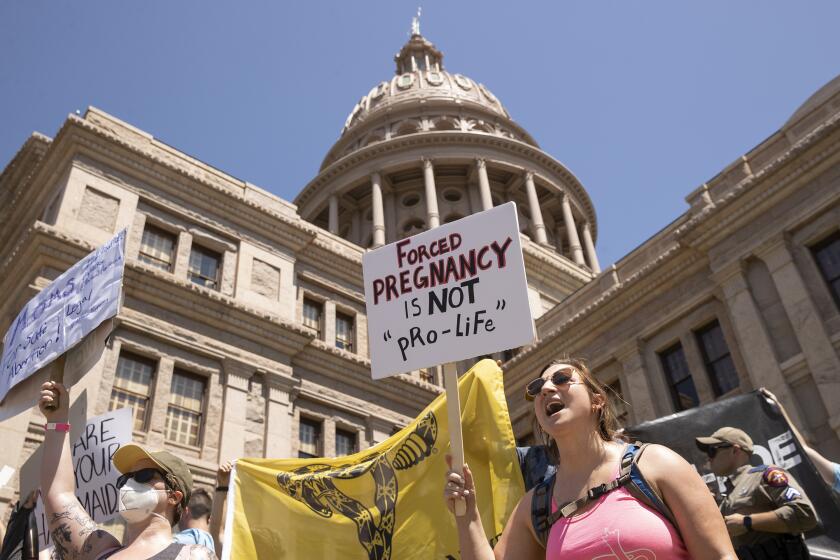Don’t Take It on Faith
In recent months, serious federal money has started flowing to religiously affiliated social services. Of the $14.5 billion in social service grants to communities given out by five federal agencies in the last fiscal year, nearly $1.2 billion went to faith organizations, according to a report from the White House Office of Faith-Based and Community Initiatives. The White House has established faith offices in several Cabinet departments to help with grants for such things as alcohol treatment and low-cost housing assistance.
President Bush, who created a faith-based-initiative office in January 2001 as one of his first executive orders, reiterated in a speech last week that taxpayer dollars shouldn’t be barred from organizations with “a rabbi on the board, cross on the wall or crescent on the door.” But here’s the rub: That cross, star or crescent may prevent the oversight that lets taxpayers know whether they are getting their money’s worth. And, as Hendrik Hertzberg puts it in this week’s New Yorker magazine, the church-state wall could end up with gaps “wide enough to drive a tractor-full of federal cash through.”
Congress is on the sidelines. Lawmakers failed last year to pass legislation establishing a moderate set of rules for federal funding to faith-based groups. It gave Bush an opportunity to fund the groups by executive order, with virtually no oversight.
Anecdotal evidence and a few academic studies show that faith-based social service programs help people lead more stable and productive lives. In Los Angeles and other cities, for instance, the Volunteers of America, founded in 1897 by the son of the founder of the Salvation Army, has kept people off the streets by combining job and education services with shelter. It offers but does not require religious education and has won awards as an effective charity.
None of the studies is empirically rock-solid, and no wonder. What’s missing, and impossible to achieve under current law, is overall accountability. The director of one of the government’s faith-based offices, who asked not to be named, said Monday that “we don’t track outcomes, and we don’t fund outcomes.” Bush, in his speech last week, acknowledged that although his administration had given “$1.1 billion in grants to faith-based groups, it’s kind of hard to fully account for it. I would call that an estimate.”
Federal laws generally prohibit government from, for instance, auditing the tax records of religious organizations. If such groups receive taxpayer dollars, these prohibitions should be eased. Federal funds should not support proselytizing. Hiring in social service programs should not be discriminatory, though religious groups are free to discriminate in their privately funded affairs. These are not onerous conditions.
Allowing religious organizations to bring their ideas to prison, welfare and homeless programs could give new meaning to serving society. In exchange, there should be a visible bottom line so taxpayers can see what they’re getting for the money.
More to Read
Sign up for Essential California
The most important California stories and recommendations in your inbox every morning.
You may occasionally receive promotional content from the Los Angeles Times.










